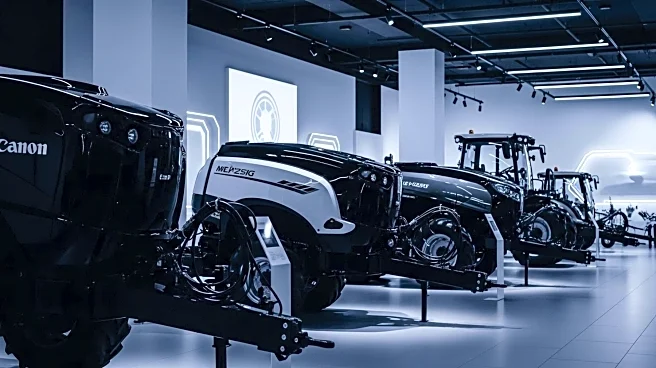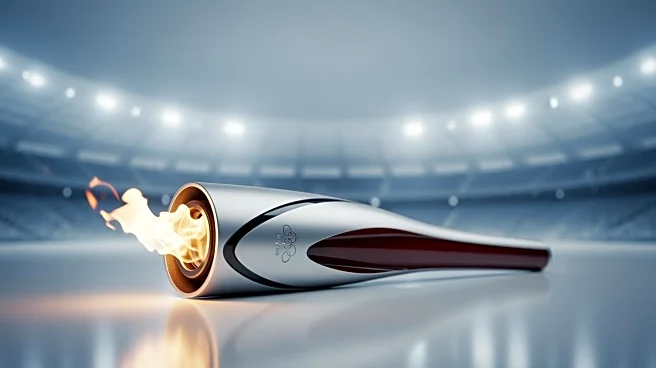What's Happening?
In the 1950s and 1960s, the U.S. farm population experienced a significant decline, dropping from a peak of 6.8 million operations in 1935 to about 3 million by 1964. This reduction in potential buyers created a challenging environment for farm equipment manufacturers, leading to intense competition and the need for industry consolidation. White Motor Corp., originally a truck manufacturer, entered the farm equipment market by acquiring several companies, including Oliver, Cockshutt, and Minneapolis-Moline. These acquisitions allowed White to capitalize on the strong brand followings and engineering strengths of these companies, particularly in diesel and liquefied petroleum gas engines. By 1969, White Motor had formed White Farm Equipment Co., unifying the operations of its acquisitions and marketing tractors under the White name.
Why It's Important?
The consolidation efforts by White Motor Corp. during this period were significant as they reshaped the farm equipment industry. By acquiring and integrating multiple brands, White aimed to establish itself as a major full-line manufacturer, offering a wide range of tractors and equipment. This move not only preserved the legacy of brands like Oliver and Minneapolis-Moline but also allowed White to compete more effectively against larger manufacturers such as John Deere and International Harvester. However, the economic downturn in agriculture during the late 1970s posed challenges for White Farm Equipment, as equipment sales began to decline. The financial difficulties faced by White Motor Corp. eventually led to the sale of White Farm Equipment, highlighting the volatility and risks associated with the agricultural equipment market.
What's Next?
The future of White Farm Equipment was uncertain following the financial struggles of White Motor Corp. and the subsequent sale of the equipment line. The company changed ownership multiple times before being acquired by Allis Gleaner Corp. (AGCO) in 1991. This acquisition by AGCO marked a new chapter for the White tractor line, as it became part of a larger conglomerate with the resources to potentially revitalize and expand its market presence. The consolidation trend initiated by White Motor Corp. set a precedent for future mergers and acquisitions in the agricultural equipment industry, as companies sought to adapt to changing market conditions and maintain competitiveness.
Beyond the Headlines
The consolidation of farm equipment manufacturers during this period had broader implications for the agricultural industry. It reflected the challenges faced by smaller manufacturers in a shrinking market and underscored the importance of innovation and strategic acquisitions in maintaining market relevance. The legacy of brands like Oliver and Minneapolis-Moline continues to influence the industry, as their engineering advancements and brand loyalty have left a lasting impact. Additionally, the economic pressures faced by White Motor Corp. and its eventual sale highlight the cyclical nature of the agricultural economy and the need for companies to remain adaptable and financially resilient.









